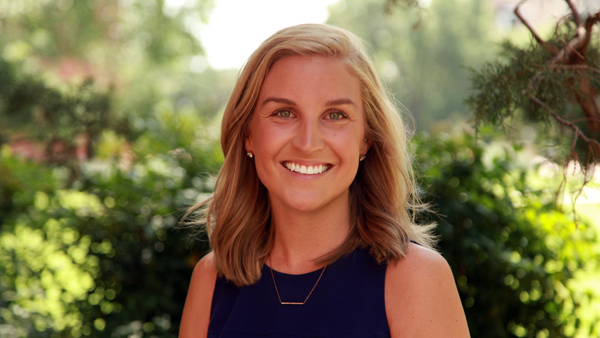The National Institute of Health (NIH) has awarded Oklahoma State University clinical psychology graduate student Elly Leavens a prestigious fellowship to examine the co-use of alcohol and hookah tobacco.
The Ruth L. Kirschstein Predoctoral Individual National Research Service Award (better known as the an “F31”) will support two years of Leavens’ tuition, stipend, and offset costs associated with education, and training, and travel. As part of the application process, candidates must show their project is viable without the fellowship so her research is backed by the Oklahoma Tobacco Research Center (funded by the Oklahoma Tobacco Settlement Endowment Trust). 
“Obtaining an NIH F31 grant is very difficult,” said Dr. Theodore Wagener, Associate for Training at the Oklahoma Tobacco Research Center. “It requires that the student present a well-designed, innovative, and significant study, develop a training plan that will prepare them to become a future standout researcher in the field, and then assemble an expert team of mentors to support their study and training. NIH funding is at an all-time low and as a result reviewers and institutes are becoming increasingly critical of what is funded. With this funding, Elly has positioned herself to be a first-rate candidate at the top psychology residencies and fellowships in the country.”
While more traditional methods of smoking tobacco and consuming alcohol have been heavily studied, Leavens became aware of a lack of research on the hookah methodsmoking, which she describes as uniquely social. Often consumed in lounges, where alcohol is also served, hookah (a.k.a “water pipe” or “hubble bubble”) is a means for smoking tobacco, typically through multiples hoses out of a single hookahpipe. This method leads to a considerable amount of smoke inhalation.
“The smoke consumed in one session of water hookah is equivalent to smoking about 100 cigarettes,” Leavens estimated.
A general interest in addictive behaviors brought Leavens to OSU for graduate school. Her undergraduate mentor at St. Louis University, Dr. Jeremiah Weinstock, directed her to OSU’s department head of psychology, Dr. Thad Leffingwell. Leavens became excited about the mentorship potential from Leffingwell and also forged an immediate attraction to the university.
“Of course the research match was there but I fell in love with the environment and support within the department, which I did not see anywhere else,” she said.
Leffingwell and Wagener served as co-sponsors on Leavens’ application, as did ViriginiaVirginia Commonwealth University’s Dr. Tom Eissenberg, a national expert on hookah research. Ultimately, the opportunity to work with three experts in their respective fields led her to purusepursue the F31 grant.
“I really saw the training component as an invaluable experience,” she said.
Wagener pointed out writing grants can be a difficult process, often making the applicant wonder if it is worth the work. He credits her unwillingness to give up as an important reason for her current success and future prospects.
“As a mentor, you just hope you can continue to feed that work ethic and determination to, in some small way, help ensure that the next generation of scientists are even better than the previous,” said Wagener.
